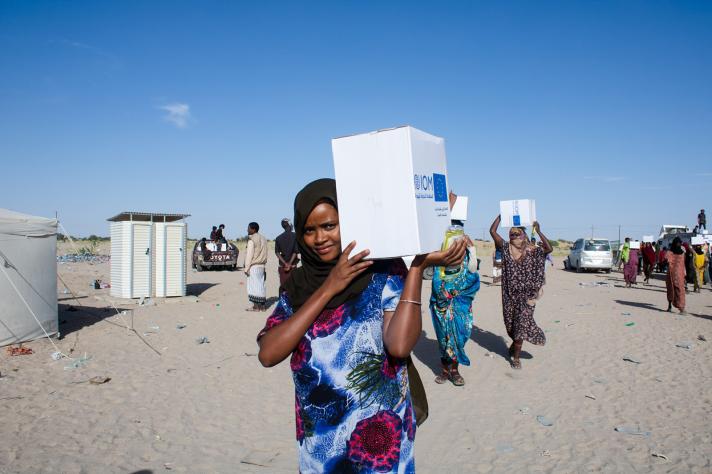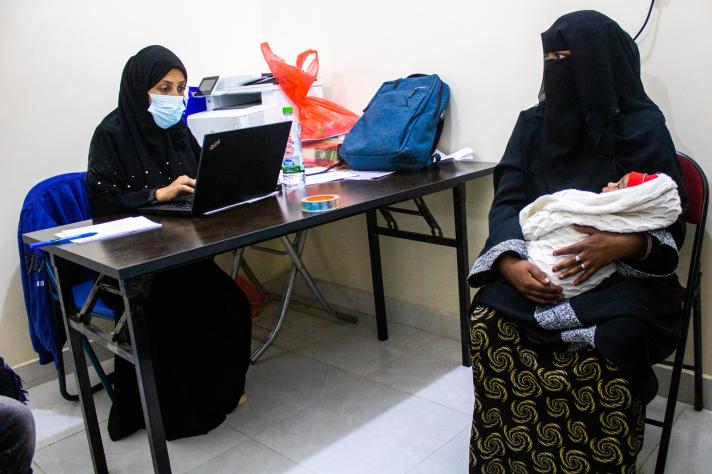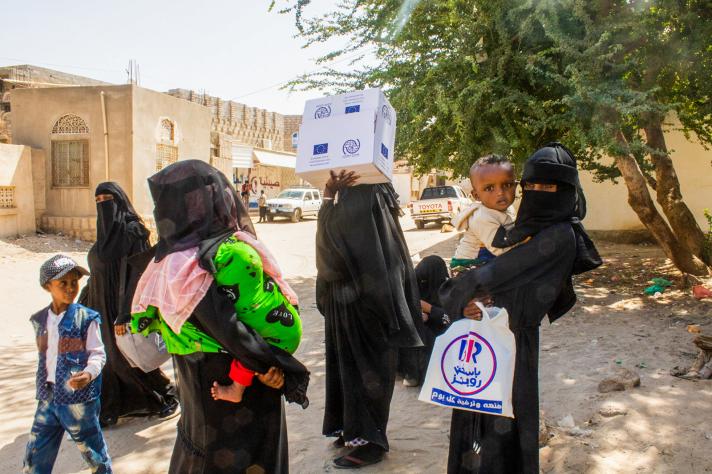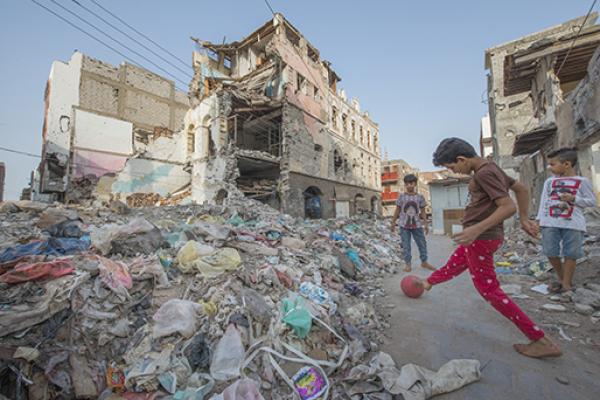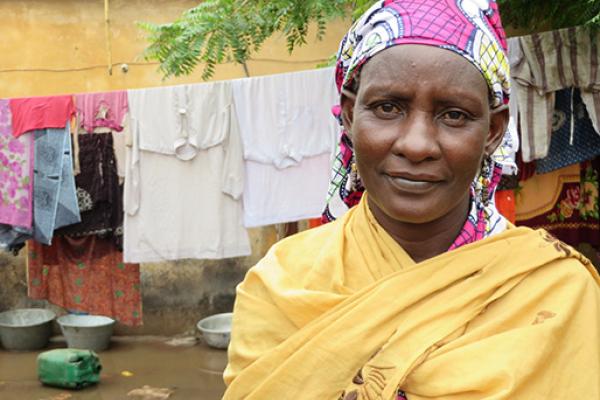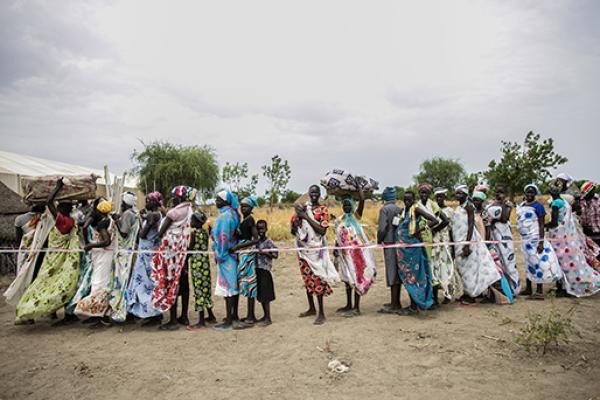We have become used to our world being one of haves and have-nots. Every year, people who believe a safer or more prosperous life awaits them elsewhere take a leap into the unknown; for a leap it is. Thousands of Ethiopians and Somalis leave their often unsafe homes for the lure of work in Saudi Arabia only to get stranded in Yemen, a country at war.
On International Migrants Day, we take a moment to shine a light on their fate, especially that of women and girls, away from the headlines. The EU supports the International Organisation for Migration (IOM) to enhance migrants’ protection and provide them with health care at a time when, trapped in a desperate situation, they have truly become have-nots.
“Imagine leaving your hometown hoping to find a better life but instead turning back with nothing, not even your dignity,” said Aisha*, a young Ethiopian migrant who left her family with her sights set on new opportunities.
She is one of 281 million people globally – out of a world population now 8 billion – that are considered migrants. Lured by smugglers and false hopes, many become easy targets of abuse, extortion, and exploitation, when all they wanted was safety and a job to provide for themselves and their families back home.
“They told me the route to Saudi Arabia would be easy, but when I arrived in Yemen, I saw how difficult it is to go there and I found out that the borders were closed,” explained Aisha.
“This journey is difficult for everyone, but it is horrifying for women because we are sometimes violated, harassed and even unwillingly impregnated.”
For months, Aisha tried unsuccessfully to make it to her destination, but she had no way of earning a living and relied on a friend from her village to feed and house her.
“Then I talked to some migrants who returned from the border. They warned us about the horrible destiny that awaits those who try to cross,” she said.
After hearing the stories of those being injured or killed, Aisha opted to return to Ethiopia, through a voluntary humanitarian repatriation programme.
“The situation of migrants is particularly tragic,” said Heather Blackwell, Head of EU Humanitarian Aid in Yemen. “After almost 8 years of conflict, a large majority of the population in Yemen needs humanitarian aid. For the EU, it is important to reach the most vulnerable: not only the many internally displaced but also migrants who have nowhere to turn and are victims of unspeakable abuse.”
With EU support, IOM and its partners, the Danish Refugee Council (DRC) and INTERSOS, support migrants in hard-to-reach areas. In Ma’rib, a city en route to Saudi Arabia at the centre of Yemen’s conflict, a migrant response point was opened.
“The smugglers film themselves beating us and send the videos to the families in Ethiopia to blackmail them. The poor families are forced to sell their houses, lands, animals, and crops to save their children,” explained Amene*, while 17-year-old Mazaa* added: “If women cannot pay money to the smugglers, their families must pay a ransom. If the ransom is not paid, they will hit women with electrical wires.”
“This is not a stable place to give birth or raise a baby, yet many women are coming to us pregnant and need help. Most are single and live in unsafe locations,” explained Iman, a member of IOM’s protection team, adding that sexual violence is the primary reason most female migrants get pregnant.
Pregnant migrant women are often forced by their smugglers to work throughout their pregnancy and lack the food and health services they need to safely deliver and raise a healthy baby.
“Babies put an extra burden on these mothers who struggle to care for them, most of the time on their own, amidst a conflict,” she added from the EU-supported Migrant Response Point where migrants can come to get clothing, personal hygiene items, food kits and cash assistance.
The centre is hosted at a hospital in an area of Ma’rib where many migrants live. It provides them with free-of-charge healthcare and psychosocial counselling.
“New arrivals are the most vulnerable because they don’t know where to go for help. When I first meet migrants here, I give them IOM’s hotline number and tell them to reach us if they face any problems,” explained Iman.
“One day, a woman came with a broken jaw and skull after being beaten. Her condition was so bad that the doctors did not think she would make it, but our medical team didn’t give up,” recalled Iman.
“I remember telling her that she would live, and she believed me. She is in good health now and feels grateful to be alive,” she added.
*Not real names
Story by Mennatallah Homaid (IOM Yemen) and Anouk Delafortrie (Regional Information Officer, EU Civil Protection and Humanitarian Aid )
Publication date: 18/12/2022

